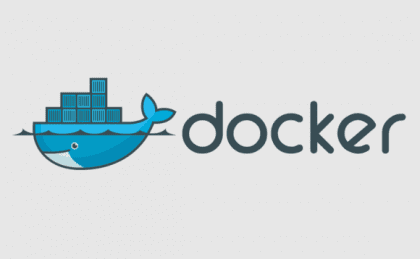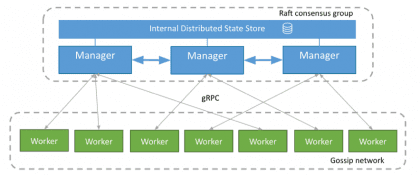Docker is what is known as an application container orchestration platform. As a platform, it offers its users everything that includes container management, ranging from the most basic requirements, such as tabulating the simplest processes that containers entail, to the most complex processes, such as the evaluation of data in time. real that are part of the functions of the orchestrator.
For this opportunity, Docker is renewed with its version 1.12, which includes many new features, thanks to the collaboration of the platform's developers and contributions made by the community.
Docker 1.12.
A group of features are incorporated into this opportunity to unleash an option known as swarm mode. This unfolds as a structure with nodes that are coupled through a decentralized system, where each node is independently a subsystem that intervenes in the administration of the general system, for the storage of resources. Each node can be programmed so that a group or some of them focus on the leadership of certain tasks; This group works on the administration of the cluster and the tasks that the container entails, plus the service provided to the API. and the other group of nodes in the remaining operations. Lwhich are known as worker nodes,tThey work on the execution of simple tasks and everything that involves the flow of data in the container. It is important to note that as part of security, these "non-leading" nodes for containers do not have full access to the information provided by the API and the data warehouse. They are only limited to fulfilling their basic functions and reporting on each of their tasks.
It is worth noting that the nodes assigned to certain tasks are not always kept permanently there, they can be reassigned to other roles through the configuration. It is usually named the support that each one can provide when one of them is not able to fulfill their assigned role.
As a support for communication between nodes, a manager is applied that supports them in this task of handling information. The nodes that they direct execute through a consensus, the actions that include services and tasks in the swarm. In other words, the node selected as the leader acts as such during management and decision-making for containers. Then, this node that manages and provides the status of each node to its surveillance, also offers information about the tasks and services executed by them. These nodes that manage in turn do not require exclusive permissions for keys that provide access to said information, they work without conflict on this issue, leaving the support that they must issue for the leaders for the remaining nodes.
In the case of worker nodes, communication with the manager nodes is executed throughl GRPC protocol who works with networks HTTP / 2. With this protocol, they render accounts to the managing nodes of the status of their assigned tasks, plus a sign of life that indicates whether the node continues to work for the container.
The swarm acts as a fast-flowing, decentralized system for each process, thanks to its distributed file system. It has a memory of instant read which optimizes these reading processes at times when the reading load is extremely high and more reading speed is needed during such circumstances. In the same way, the information writing in the structure of the swarm; grouping all the information in the same network, something that saves a lot of time during object requests. Obviously, the efficiency in the writing and reading of data considerably increases the speed and the performance, without underpricing the conservation and storage of the data during the process.
Docker 1.12 manages the swarm system to provide well-distributed data storage and fast access to the data it contains. Making a read intensive system that only addresses data writing to disk in very necessary moments. Something that provides greater performance in this area for the system and that does not leave security aside, which within Docker is very accessible for those who are not experts in the field. You should only have more advanced knowledge in cases where you must handle security for overlay network traffic, which in most cases require manual attention or configuration.
If you want to know more Docker and its new version here we leave you the link of its official blog.


